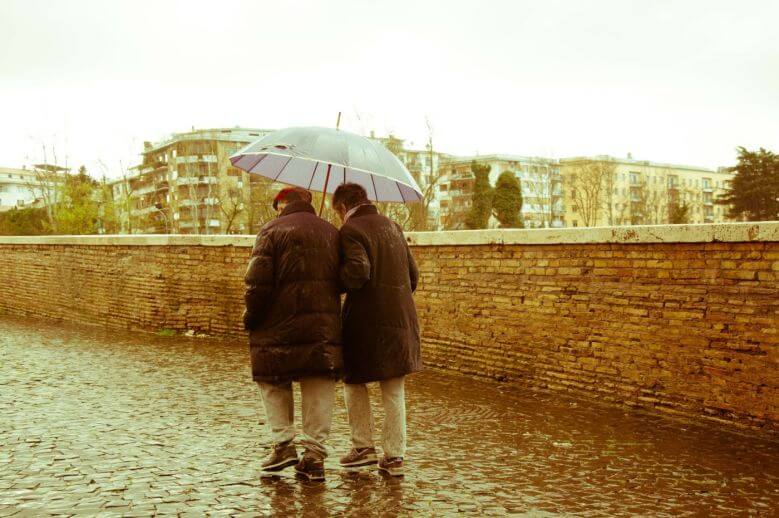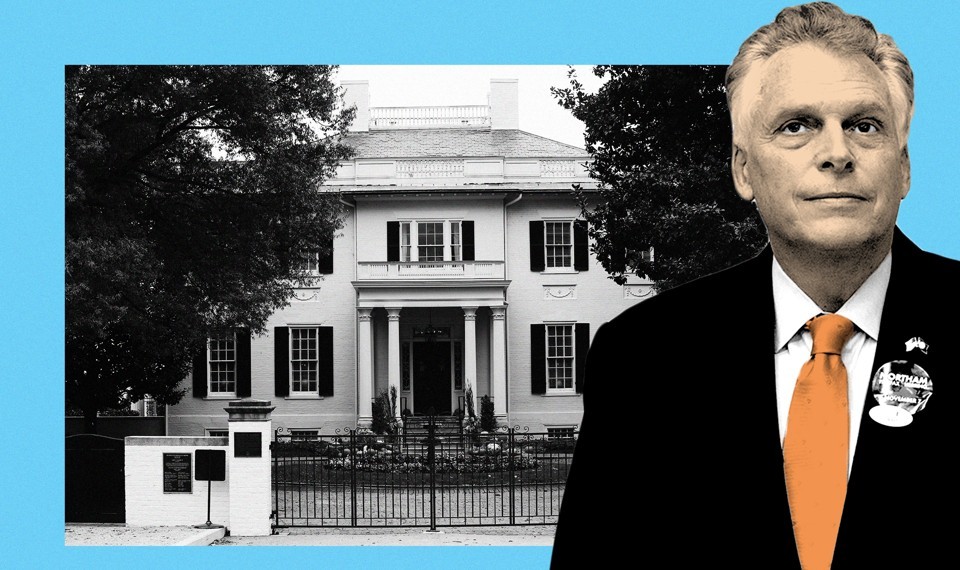January 14th, 2018
For your Bits this weekend we get started with relationship advice compiled from almost 1,500 people in happy relationships who have been married for 10+ years. Despite coming from people “around the world” and “across all walks of life” the guidance was surprisingly uniform and could be distilled into 13 recommendations that all people can use to help create the strongest relationships possible:
- Be together for the right reasons;
- Have realistic expectations about relationships and romance;
- The most important factor in a relationship is not communication, but respect;
- Talk openly about everything, especially the stuff that hurts;
- A healthy relationship means two healthy individuals;
- Give each other space;
- You and your partner will grow and change in unexpected ways; embrace it;
- Get good at fighting;
- Get good at forgiving;
- The little things add up to the big things;
- Sex matters… a lot;
- Be practical, and create relationship rules; and
- Learn to ride the waves.
The best life partnerships are not static but ever-evolving relationships between people who respect and enjoy each other so that they are able to ride the waves and build a full life together.
1,500 People Give All The Relationship Advice You’ll Ever Need

~ 42 Minute Read
“I’d like to take a moment to thank all of the readers who took the time to write something and send it to me. As always, it was humbling to see all of the wisdom and life experience out there. There were many, many, many excellent responses, with kind, heartfelt advice. It was hard to choose the ones that ended up here, and in many cases, I could have put a dozen different quotes that said almost the exact same thing.
Exercises like this always amaze me because when you ask thousands of people for advice on something, you expect to receive thousands of different answers. But in both cases now, the vast majority of the advice has largely been the same. It shows you how similar we really are. And how no matter how bad things may get, we are never as alone as we think.
I would end this by summarizing the advice in one tidy section. But once again, a reader named Margo did it far better than I ever could. So we’ll end with Margo:
‘You can work through anything as long as you are not destroying yourself or each other. That means emotionally, physically, financially or spiritually. Make nothing off limits to discuss. Never shame or mock each other for the things you do that make you happy. Write down why you fell in love and read it every year on your anniversary (or more often). Write love letters to each other often. Make each other first. When kids arrive, it will be easy to fall into a frenzy of making them the only focus of your life…do not forget the love that produced them. You must keep that love alive and strong to feed them love. Spouse comes first. Each of you will continue to grow. Bring the other one with you. Be the one that welcomes that growth. Don’t think that the other one will hold the relationship together. Both of you should assume it’s up to you so that you are both working on it. Be passionate about cleaning house, preparing meals and taking care of your home. This is required of everyone daily, make it fun and happy and do it together. Do not complain about your partner to anyone. Love them for who they are. Make love even when you are not in the mood. Trust each other. Give each other the benefit of the doubt always. Be transparent. Have nothing to hide. Be proud of each other. Have a life outside of each other, but share it through conversation. Pamper and adore each other. Go to counselling now before you need it so that you are both open to working on the relationship together. Disagree with respect to each other’s feelings. Be open to change and accepting of differences. Print this and refer to it daily.'”
Click To Read The Full Article At MarkManson.net
Sign Up To Receive Weekend Bits In Your Inbox Every Sunday
Our next article takes a look at a the life of Amadeo García García, the last native speaker of Taushiro. Once a language spoken by thousands of people in the northern Peruvian Amazon River basin, Amadeo’s group avoided the Europeans and Americans who came to harvest rubber and capture slaves in the beginning of the 20th century by disappearing into the Amazon. His first positive contact with the outside world came from a Christian missionary who provided antibiotics that saved many lives in Amadeo’s settlement. The missionaries had come to convert the Taushiro and Amadeo was chosen to go with them to take on the burden of preserving his language. He ended up marrying a young girl of 12 years old and fathering five children before she left him after years of abuse. This left Amadeo as an unprepared single parent in an unfamiliar place where he was unable to provide for his children; he ultimately allowed them to be adopted and moved to Puerto Rico where they would learn Spanish and forget the Taushiro language and customs. Nearly 40 years later, with his children scattered around the world, the rest of Amadeo’s family has passed away and he lives in a small village near the jungle where he was born, doing what he can to preserve as much of the Taushiro language as possible before it dies along with him.
Thousands Once Spoke His Language in the Amazon. Now, He’s the Only One.

~ 27 Minute Read
“Nearly 20 years later, Amadeo walked through an overgrown cemetery, the place he had buried his brother. The wooden cross had fallen over. Juan García’s name was barely visible where it had been etched onto one of the beams.
“When I’m gone, I’ll be here as well,” Amadeo said later that day. “I am old and will disappear at any time.”
Yet even in the twilight of Amadeo’s life, a few hold out hope that some part of the Taushiro language will persist after him.
This year, Peru’s Ministry of Culture decided to take up the work that Ms. Alicea began. Working with Amadeo, government linguists have created a database of 1,500 Taushiro words, 27 stories and three songs, with plans to make recordings of Amadeo available to academics and others interested in the language.
It is a race against time — and against Amadeo’s own memory, which sometimes fails him after so many years of having no one to speak with in Taushiro.
But linguists involved in the work say that even if Taushiro dies with Amadeo, a record of it will be kept, at least.
“It’s the first time that Peru has made this kind of gesture,” said Mr. Panizo, the linguist leading the project.
Last February, the government flew Amadeo to Lima to give him a medal for his contribution to Peruvian culture. The sudden attention was a shock to Amadeo, along with the packed streets of Lima and the interviews with the local news media.
Still, he beamed as a crowd gathered for a ceremony that honored several other indigenous activists who spoke their languages. Government officials gave impassioned speeches on the importance of preserving the 47 indigenous languages that remain in the country. Amadeo spoke words in Taushiro.
While Amadeo knew that he had not passed his language to his five children, he took comfort in the fact that they were safe. They had not suffered the fate of their relatives, who had all perished in the forest. One of them, Daniel, was even in the audience that day to see him.
After the ceremony, the two men embraced. Daniel introduced Amadeo to his 6-year-old daughter, the first time Amadeo had met his grandchild.
“I just want to be proud of my father, of the tribe that we were, that I was born into, that we lived,” said Daniel, who works as a construction worker in Lima.
One evening this summer, Amadeo sat alone and began to speak his language, saying one sentence in Taushiro, then translating it into Spanish, before repeating the process. It was growing late, the crickets and frogs were getting louder, and Amadeo raised his voice above them.
“I am Taushiro,” he said. “I have something that no one else in the world has. One day when I am gone from the world, I hope the world remembers.””
Click To Read The Full Article At The New York Times
Sign Up To Receive Weekend Bits In Your Inbox Every Sunday
Your last Bit of the weekend takes a look at how Governor Terry McAullife’s administration has prioritized the restoration of civil rights for convicted felons which has allowed tens of thousands of people to exercise their right to vote. Stripping civil rights from people with criminal records was a common practice throughout the southern United States during the turn of the 20th century; as a key component of Jim Crow legal regime state and local governments were able to disproportionately charge African-Americans with crimes and prevent them from engaging broadly in society’s discourse. These laws continue to cause problems for people who have been convicted of crimes at any point in their life; for example, preacher and Vietnam veteran George H. Spicer was unable to become a substitute teacher due to a misdemeanor he received as a 17-year old despite decades of service to the community. One of the largest consequences of these laws is the disenfranchisement of felons who are unable to vote even after serving their sentences and reintegrating into society. McAuliffe’s administration made a protracted effort to reinstate voting rights for felons and his efforts have restored civil rights to almost 200,000 people allowing them to become fully engaged citizens moving forward.
How Letting Felons Vote Is Changing Virginia

~ 15 Minute Read
“Spicer met the governor in 2013 on the campaign trail, when the preacher was the interim pastor at Bethany Baptist Church in Hampton Roads, and when McAuliffe was the Democratic candidate seeking critical support from black communities in the Tidewater. Under its late pastor Jake Manley and then Spicer, Bethany had built its own initiatives to help shepherd black men with felonies back into everyday life, and also to advocate for the restoration of their rights.
Three years after Michelle Alexander’s The New Jim Crow, the policy ramifications of mass incarceration in black communities had become clear, especially at the intersection of old Jim Crow laws and civil-rights abridgements today in places like Virginia. But Democrats—then, as now—have been slow to embrace some more substantive criminal-justice reversals that might meaningfully reduce the rolls of people with felonies, and those who’ve had their rights impaired. People like Spicer at places like Bethany often pleaded for help from state politicians in easing some of the state’s most severe restrictions on people with felonies, to little avail. But during his campaign stop at the church, McAuliffe picked up this thread, promising the beginnings of what became a restoration-of-rights campaign, and also promising to come back to the church as governor.
Four years later, the piece of that campaign that has received the most attention has been the state’s massive push to restore the voting rights for people with felonies. Perhaps unsurprisingly, Virginia has historically been one of the most zealous states in the country in disenfranchising people with felonies, with even those who finish probation having what amounts to a lifelong severance of voting rights unless the governor reviews their case and restores their rights personally.
Also unsurprisingly—like dozens of similar laws in other states—that restriction was created with explicitly racist intent. At the turn of the 20th century, with a white backlash fueling the dominance of a Redeemer government that took power after Reconstruction, white-supremacist politicians began to craft the laws that constituted both the beginnings of a state-codified carceral system, and the bedrock of Jim Crow that was the disenfranchisement of Negroes. To get around the obstacle of the 14th Amendment’s prohibition of explicitly discriminatory laws, the crafters of the state constitution relied on the criminalization of blackness and the penalty of “civil death” as one particularly effective way to ensnare black citizens in the dragnet of disenfranchisement.
“I told the people of my county before they sent me here that I intended,” delegate R.L. Gordon said, “as far as in me lay, to disenfranchise every negro that I could disenfranchise under the Constitution of the United States, and as few white people as possible.”
The resulting web of laws survived over a century, through the civil-rights movement. In Virginia, it survives to this day. Even when McAuliffe issued an executive order in April 2016 declaring that all people with felonies who’d completed parole—some 200,000 persons—would have their rights immediately restored, it didn’t change the underlying laws, and meant that future restorations would still rest solely with the authority and the will of the office of the governor. When Republicans in Virginia’s state legislature revolted at that executive order and won an August 2016 Virginia Supreme Court decision blocking restorations en masse, McAuliffe took another route, with his office reviewing thousands of felons’ records and the governor restoring their rights individually using an autopen. The number of restorations completed that way only stood at 13,000 of the planned 200,000 in August of 2016. But the administration has been persistent, and now Secretary of the Commonwealth Kelly Thomasson tells me 172,298 people have had their rights restored as of Friday, with more on the way in the last week of the governor’s term.”
Click To Read The Full Article At The Atlantic
Thanks for checking out the Weekend Bits! If you enjoyed these Bits, why don’t you share it with a friend? We appreciate your support and as always, Contact Us online or send us an email at [email protected].
Have a great rest of your week!